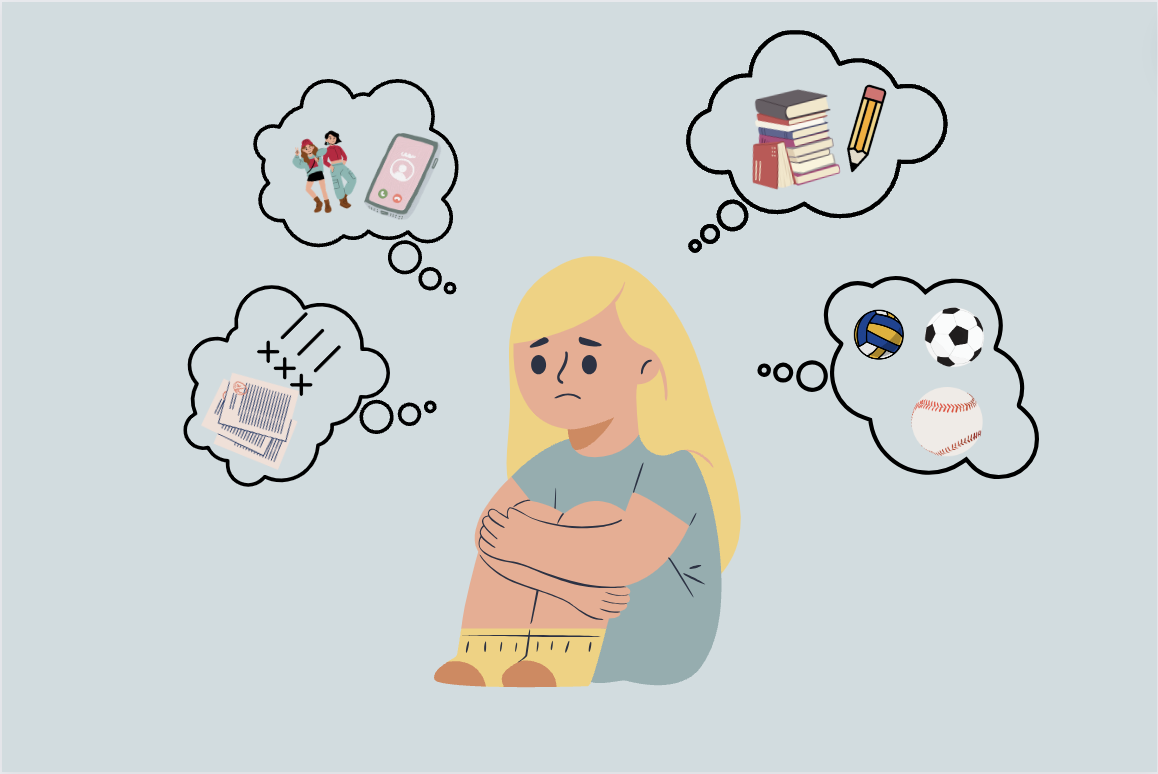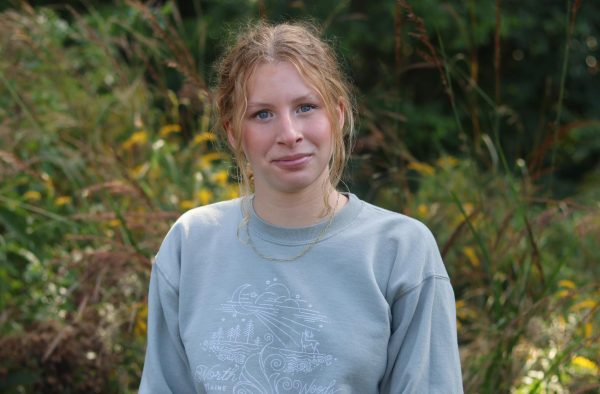Mental health is the emotional, psychological and social wellbeing of a person. It is affected by the way people feel, act and think, which helps determine how a person handles stress and makes choices through the course of their life. This can be important in school because students and teachers think and reflect on several things throughout the day, which can affect their mental health. Join Staff Reporter Addison Voight as she talks to History teacher David Gavron, freshman Sakeena Ma and sophomore Monica Botros talk about their mental health and how it has changed over the course of the year.
1. What does mental health mean to you?
Gavron: “I think of mental health as how positive those voices in your head are and how positive your self-talk is, where I feel that if someone is mentally healthy, they’re able to deal with setbacks and challenges in one area of their life, which don’t impact and cause problems in other areas of their life. So being self aware and knowledgeable that there are times when you’re not going to feel [positive] and that’s okay. And that you don’t have to go around your life pretending that everything is good all the time.”
Ma: “I think it means being able to balance all the aspects of my life without getting too overwhelming. It also means being able to be my best self around people that I love and making sure that the people I surround myself with make me a better person. I think that’s what it means to me, because those are the things that are important to me.”
Botros: “Mental health means that I have a great mindset, whether that be in school or out of school.”
2. How has the school year gone so far for you?
Gavron: “It is going great. I’m pleased in the relationships that I’ve built with my students in classes. I’d like to see us be a little bit more academically motivated, but other than that, the school year has been going well.”
Ma: “It’s definitely been a learning process. In the beginning of the year I feel like everything was so much more manageable. But then, I think starting around winter break, things started getting a lot more overwhelming and I’ve had to learn to balance everything in my life and learn how to study for things [and] just be on top of my work.”
Botros: “It’s been okay. My grades aren’t too bad.”
3. How has that affected your mental health?
Gavron: “It just gets me frustrated at times. And I’m speaking specifically to students not doing the work that I would expect that they’d be able to do or putting in the effort that I would expect that they could be able to do. I know that it can have a negative impact on me, but I’m trying to remember to be upbeat and try to think of ways in which I can help as opposed to knocking myself down or knocking others down because students aren’t reaching the standards that I want.”
Ma: “I think, again, I was fine at first, but then eventually, especially because so there’s so many periods of time where teachers will pull all their tests so close together, that I get really burned out easily. I’m the kind of person who gets pretty overwhelmed when I have a lot of things to do, so I’ve had to learn to manage everything in a way that it doesn’t work against me.”
Botros: “I’ve been working a lot, which is good in the long run because that’s what you do, that’s what’s keeping me going.”
4. What do you think is your biggest obstacle that has affected your mental health?
Gavron: “For people in general, their mental health is impacted by all the competing interests, especially when I look at students and what’s impacting students’ lives. You guys have social media, you have nonstop 24 hour access to what’s going on in the world. You have high expectations academically, socially, extracurriculars, family, it’s just nonstop bombardment. So somehow I hope that we can get to a place where students can breathe. I know you asked about me, but I’m directing it back to students.”
Ma: “I think it would probably be school. I take rigorous classes, it’s a lot. It’s a lot different than middle school. I’ve had to learn that teachers aren’t going to hold your hand as much, and I’ve had to spend so much time learning how to do things for myself and be more self reliant. I think that’s what’s definitely taken a toll on my mental health, and it’s definitely a big energy consumer.”
Botros: “My grades, because I feel like I haven’t been doing my best work recently and I’ve just been tired.”
5. How has your mental health improved and worsened since the first quarter?
Gavron: “Mine’s been fine, so it doesn’t really impact me.”
Ma: “I think for a while it definitely worsened a little bit, it was definitely a curve that I had to overcome. But now I think I’ve learned to work with it. I’ve learned to make the best of it. I think everyone eventually has to go through learning how to balance everything in their life. It’s definitely gotten better.”
Botros: “It’s improved because I feel like I know what I’m doing and I’m not just winging everything.”
6. Is there a person you know that has been beneficial to your mental health?
Gavron: “I think that for me, it’s definitely been my family. Being able to share the highs and lows, with my wife in particular, but also being able to be happy and excited about all the good things that are happening in my children’s lives.”
Ma: “I have a great group of friends and they’re all willing to listen to me when I need to vent and when I need to just let things out. They’ve all been there for me and I’m very grateful for them. And definitely communicating and having good relationships with teachers has been very helpful, because I know at the end of the day they know me best as a student. So that’s helped me improve both in the school sense and also just overall.”
Botros: “All my friends have been really pushing me to be the best person and student I can be.”



























